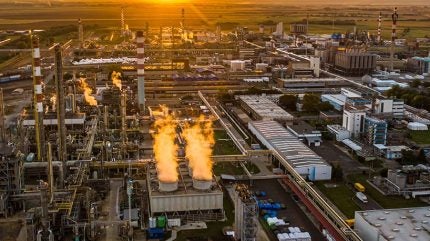
Lummus Technology, a provider of licensing services and equipment to the oil and gas industry, and integrated oil, gas, petrochemicals and consumer retail company, MOL Group, have partnered on a new advanced plastic waste recycling plant.
Located in MOL’s headquarters in Tiszaújváro, Hungary, the plant will have a processing capacity of 40,000 tons of mixed waste plastics per annum and will produce circular petrochemical building blocks which MOL will process in its petrochemical facility.
The plant will also feature advanced greenhouse gas (GHG) reduction design elements, including a fully electric pyrolysis reactor which is expected to result in zero direct scope 1 [those from sources owned or controlled by the company] emissions from the unit during normal operation.
Chemical recycling of plastics is part of MOL’s commitment to collect 5m tonnes of municipal solid waste, which includes the treatment and related investments. The company will be able to offer a wide range of sustainable compounds to the global packaging sector.
MOL Group executive vice-president of downstream Gabriel Szabó commented: “The chemical industry will play an important role in kick-starting the circular economy and accelerating the smart transition.”
Lummus’ Green Circle business unit is providing MOL with advanced waste plastic pyrolysis technology, which converts plastic waste into chemicals and feedstocks, and residue processing technology.
In 2023, Lummus signed a memorandum of understanding with biotechnology company RWDC Industries to deploy polyhydroxyalkanoates (PHA) across the globe.



